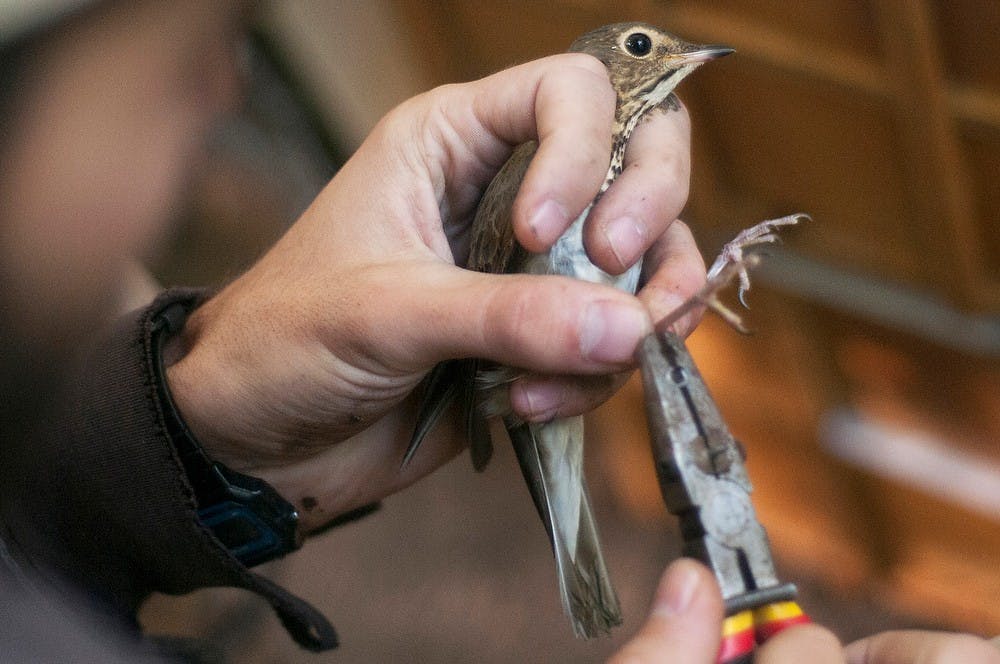Students and faculty from MSU’s Department of Fisheries and Wildlife raced to ?finish a bird catching project this weekend before the end of the season approached.
The research project, headed by fisheries and wildlife ?assistant professor Jen Owen, is ?an effort to learn more about the impact of invasive plant species on bird health.
Program participants traveled to Bath, Mich. Friday morning to band a wide variety of bird species. The researchers also welcomed community members to observe their ?work.
Additional research could lead to a better understanding of how destructive these species can be, program participants said.
For the past two years, Owen and her team have been ?capturing birds with grant funding from the U.S. Fish and ?Wildlife Service.
The bulk of Owen’s research focuses on taking blood samples, weighing and tracking birds. The health of the birds involved in the research is a primary concern, she said.
Fisheries and wildlife ?graduate student Yushi Oguchi said looking at the immune system of these birds might give insight into the potentially negative effects of invasive species in Michigan.
“This is the first study of its kind,” Oguchi said.
Invasive species are not a new problem for the environment. The plants being tested in the study have been around for many years and were ?originally planted by deer hunters, who thought the new plants would assist them in drawing deer during hunting season.
Although the research is not complete, Oguchi has found some telling patterns in the data.
Based on the capture and recapture rate of birds in the area, Oguchi has found the birds tend to stay in the native habitat instead of areas with more invasive plants.
If the birds lose more of their native habitat to invasive plants, their lifestyles could be negatively impacted.
Kaitlin Clark, a fisheries and wildlife senior, is a research assistant working with Owen and Oguchi on the bird banding project.
Clark is the president of the MSU Birding Club and is ?worried that if the loss ?of native habitat doesn’t stop, it could be the end for many ?of Michigan’s birds.
“The habitat loss has been really hard on songbirds,” Clark said. “It’s getting to the tipping point.”
The research post in Bath has drawn more than just birds to the area. Local residents also stopped by Friday to see the researchers in action.
Owen said the project is “perfect for community engagement.” She said she always ?welcomes people coming to enjoy the birds.
Owen also has scheduled MSU ornithology classes to come out to the site. The students are quizzed on the types of birds caught in the area.
Support student media!
Please consider donating to The State News and help fund the future of journalism.
Discussion
Share and discuss “Researchers band birds to study effects of exotic plants” on social media.







